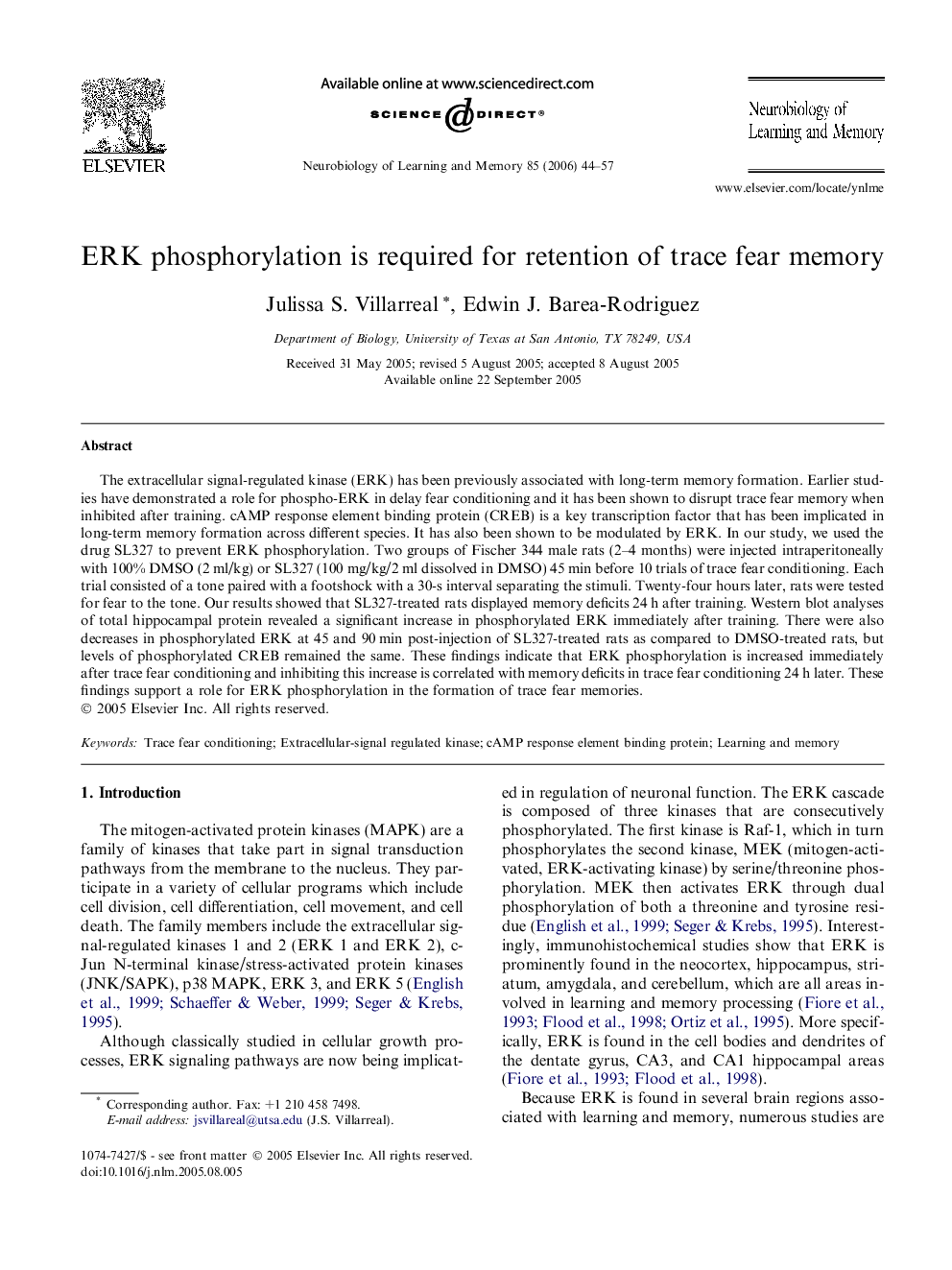| Article ID | Journal | Published Year | Pages | File Type |
|---|---|---|---|---|
| 937292 | Neurobiology of Learning and Memory | 2006 | 14 Pages |
The extracellular signal-regulated kinase (ERK) has been previously associated with long-term memory formation. Earlier studies have demonstrated a role for phospho-ERK in delay fear conditioning and it has been shown to disrupt trace fear memory when inhibited after training. cAMP response element binding protein (CREB) is a key transcription factor that has been implicated in long-term memory formation across different species. It has also been shown to be modulated by ERK. In our study, we used the drug SL327 to prevent ERK phosphorylation. Two groups of Fischer 344 male rats (2–4 months) were injected intraperitoneally with 100% DMSO (2 ml/kg) or SL327 (100 mg/kg/2 ml dissolved in DMSO) 45 min before 10 trials of trace fear conditioning. Each trial consisted of a tone paired with a footshock with a 30-s interval separating the stimuli. Twenty-four hours later, rats were tested for fear to the tone. Our results showed that SL327-treated rats displayed memory deficits 24 h after training. Western blot analyses of total hippocampal protein revealed a significant increase in phosphorylated ERK immediately after training. There were also decreases in phosphorylated ERK at 45 and 90 min post-injection of SL327-treated rats as compared to DMSO-treated rats, but levels of phosphorylated CREB remained the same. These findings indicate that ERK phosphorylation is increased immediately after trace fear conditioning and inhibiting this increase is correlated with memory deficits in trace fear conditioning 24 h later. These findings support a role for ERK phosphorylation in the formation of trace fear memories.
